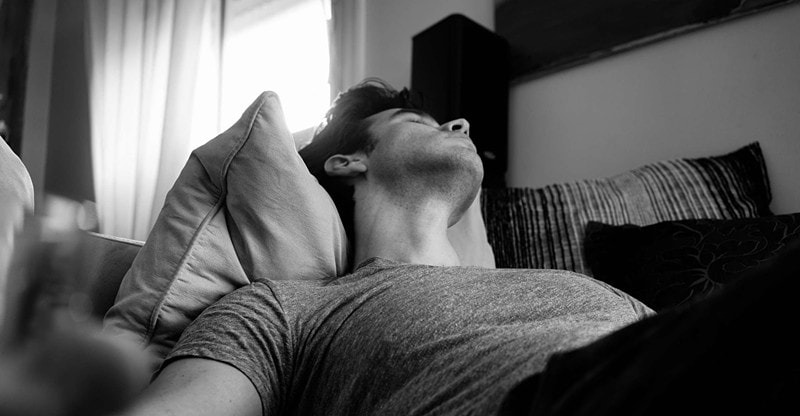Meditation Tips: 4 Proven Methods for a Better Sleep
Do you feel sleepy, especially during daytime? Are you feeling irritable all the time? Do you leave your office or your classroom in zombie-mode after a day’s work? Are you easily distracted or feel like it takes too long for you to react to something?
If your answer to any of the questions above is yes, you may be one of 50-70 million people who are not getting enough sleep at night. According to Mattress-Guides, the results of sleep deprivation vary from a mild lowering of productivity to serious health issues such as depression.
You’ve probably heard of the saying, “You snooze you lose” before, right?
In our race against time to become more and more productive by keeping our schedules and our lives busy, giving up sleep is the most common sacrifice that we make. A survey conduct by SleepStandards.com, only 10% of American adults priorities sleep over other activities such as fitness, work, or hobbies.
We stay up too late, perhaps due to school commitments or work that we have to get done before the fast-approaching deadline, we might even be voluntarily restricting the time for sleep in favor of late-night socializing, and after all these, we get up early the next day to go to work or school. But do you know that if you don’t snooze, you lose?
You might be thinking that just sleeping for 6 hours a night isn’t that far from the 8 hours recommended sleep, so you’re not really losing much, right? Well, losing sleep a little at a time will add up and accumulate into sleep debt which your body can’t help but pay up.
Sleep deprivation is linked to a lot of negative effects, one of which is overwhelming stress. And it goes both ways as having too many things on your mind can actually affect your body’s ability to fall asleep. When you are thinking too much, instead of feeling sleepy, your mind goes into overdrive and you end up not getting enough sleep.
But there are lots of tips to try to get better sleep at night, some of which include staying off your phones, tablets, or laptops during bedtime or refraining from drinking coffee hours before you go to sleep at night. But there’s one thing that those with insomnia have tried and proved to be effective: Meditation.
Meditation Tips for Better Sleep
So, if you find yourself feeling so anxious that you’re tossing and turning at night, you may want to try these 4 meditation tips so that you can get better sleep:
1. Yoga
One of the most popular meditation techniques that you’re probably not a stranger to is yoga. This exercise is not just for getting a healthier and more flexible body; it also helps its practitioners have a clearer mind, which is one of the keys to getting better sleep at night.
In fact, a 2004 study has shown that when people who have trouble sleeping do yoga, they sleep better. And that is because Yoga has been known to lower stress levels and certain yoga poses have calming effects.
Notice I said certain poses? That’s because yoga also contains dynamic poses that make you feel more energized. That’s all well and good, but if you’re getting ready to sleep, feeling like you have excess energy won’t really make you want to fall asleep.
But, there are yoga poses that can specifically help you fall asleep. The good thing is that even if you are a total yoga novice, you can still do these poses.
Take the Savasana or the Corpse Pose for example. In this pose, all you have to do is lie on your back on the ground, with your legs straight and your arms by your side, while making sure to keep your focus on your breathing, and then feel yourself letting go of your worries in the process.
2. Mindful Meditation
Do you know that you can sleep better by becoming more aware?
It may sound improbable since increased awareness is commonly thought of as thinking about every little thing that goes on around you and you would probably think, “won’t that make my mind more active instead?”
But being in an active state of awareness called Mindfulness can help improve your sleep. And according to research, mindful meditation is linked to improved sleep and a reduction in sleep-interfering cognitive process.
This is because when you practice mindful meditation, you become increasingly aware of what is happening in your present, allowing you to notice when you are getting lost in your thoughts, and with enough practice, once you are aware, you will be able to bring your focus back to your breath, or another meditation object of your choice.
Mindful meditation is easy and is forgiving. And by that I mean that it’s okay if your thoughts wander during your meditation, just do your best to bring your wandering thoughts back to focus.
For those who think just one tip might not be enough to help their sleep deprivation, here’s a bonus: there’s such a thing as yoga with mindful meditation and it’s called mindful yoga.
3. Imagery Distraction
Yes, you read that right. Distraction through guided images can help you relax and ease your mind by distracting it from other distracting thoughts. Sounds distracting enough?
Remember how when you were a kid and you have trouble sleeping, you were taught to count imaginary sheep jumping over fences until you reach oh, say a thousand sheep, and suddenly you were feeling sleepy, then next thing you know you’re off in dreamland playing with said sheep?
Okay, you may not have dreamt of a sheep, but at least you fell asleep. Guess what, counting sheep doesn’t really work in helping us sleep with our current busy lifestyle.
What does work though is imagery distraction, by guiding your mind to imagine a relaxing scene, you are keeping unwanted thoughts and worries that affect your ability to fall asleep at bay.
So, the next time you’re in bed and your mind starts to wander towards your to-do list for the next day, close your eyes, take a deep breath and start imagining something that makes you feel relaxed.
This can be anything really, as long as it calms you down. It could be a memory of your last relaxing vacation, perhaps an image of you lounging on a hammock in Hawaii, or your favorite unwinding activity, like reading a book on a lazy afternoon.
Once you have that image in your head, concentrate your mind on it until you find yourself letting go of all other thoughts. When your mind feels relaxed, your body would follow, and when your whole being is relaxed, falling asleep and getting better sleep becomes easier.
4. Progressive Muscle Relaxation
Are you still feeling very much awake even as you lay in your bed?
Try releasing your stress through progressive tensing and relaxing of your muscles as you lay in your bed. Take a deep breath and relax before starting on one end of your body and working your way either downwards or upwards, as you focus on slowly tensing then relaxing each muscle group.
You tense your muscles for 5 seconds then relax for 30 seconds, and after you have gone through all the muscle groups in your body, you do it all over again.
Some people find it easier to start with slowly tensing and relaxing the muscles in their toes as they work their way up towards their neck and head while some do it in reverse. It’s all about what is more comfortable for you. Then as you keep on practicing this method, afterward, you can also try other variations of progressive muscle relaxation.
When you progressively tense and relax your muscles, you are focusing on your body and how it currently feels, thereby removing the “I can’t sleep” and other worrying thoughts from your mind. A study has even shown that it’s not just people who lack sleep that can benefit from progressive muscle relaxation, even cancer patients can as well.
Conclusion
Our fast-paced lifestyle demands a lot from our bodies and it becomes a constant struggle to find a balance in everything we are currently doing and everything we want to do, so we sacrifice what we think is just a few winks of sleep, not knowing that the few winks would snowball into a few hours of sleep deprivation.
In such a situation, we often circumvent our lack of sleep by drinking lots of caffeine and abide by the saying “sleep is for the weak.”
However, time and time again, it has been shown that not getting enough sleep is detrimental, not only to our physical health but also to our mental health. Not only that, the quality of sleep is similarly just as important as getting enough time to sleep.
So, when you find yourself sleep deficient and you’ve tried other methods that just aren’t working for you, maybe it’s time for you to try meditating yourself to sleep.
Plus, this method of putting yourself to sleep comes with the added perks of being able to manage your stress levels better along with training your mind to focus more and have an overall more fulfilling life.
Resources:
- many people try CBD oil to help with sleeping: Flawlesscbd



